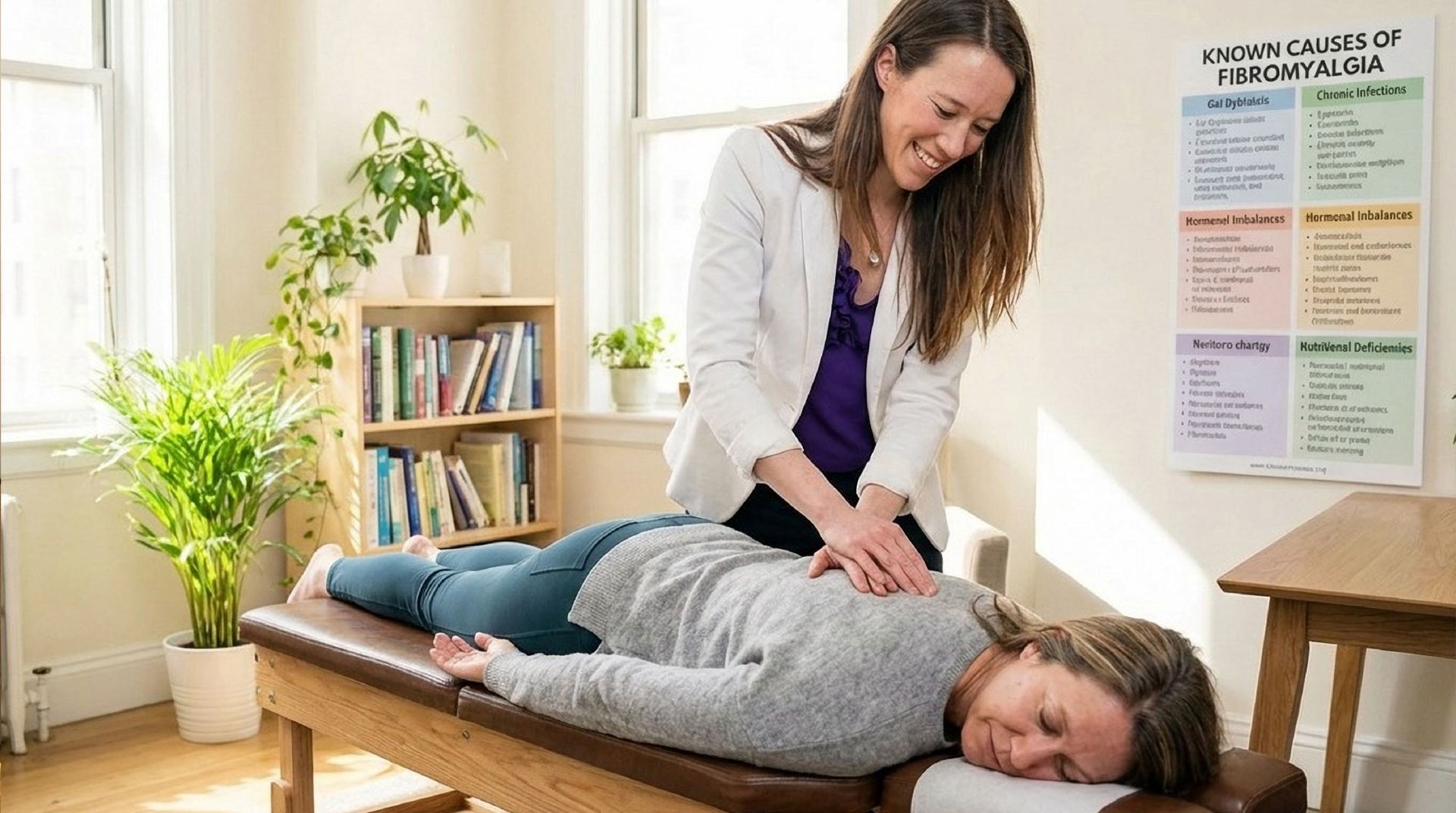Premenstrual Dysphoric Disorder: Symptoms, Diagnosis, and Treatment
Premenstrual Dysphoric Disorder is a serious condition that significantly impacts a woman's quality of life. By understanding its symptoms, causes, and treatment options, women can take proactive steps toward managing their health.
-Dr. Alicia Armitstead
Premenstrual Dysphoric Disorder (PMDD) is a severe and often debilitating condition that affects a significant number of women in their reproductive years. While many individuals experience mild to moderate symptoms of premenstrual syndrome (PMS), PMDD goes beyond these typical experiences, manifesting in more intense emotional and physical symptoms that can significantly disrupt daily life and relationships. This blog post aims to provide an in-depth understanding of PMDD, including its symptoms, causes, diagnostic process, and treatment options.
What is PMDD?
PMDD is defined as a severe form of premenstrual syndrome characterized by emotional and physical symptoms that occur during the luteal phase of the menstrual cycle—typically one to two weeks before menstruation begins. According to the American Psychiatric Association, PMDD is classified as a mental health disorder in the "Diagnostic and Statistical Manual of Mental Disorders" (DSM-5). It is estimated to affect about 3% to 8% of women of childbearing age, often leading to considerable emotional distress or functional impairment.
Recognizing the Symptoms of PMDD
The symptoms of PMDD can be varied and extensive, often mirroring those associated with mood disorders. They typically improve within a few days after the onset of menstruation and may include:
- Emotional Symptoms - The emotional aspect of PMDD is particularly debilitating. Women may experience severe mood swings, irritability, sudden anger, depression, anxiety, and feelings of hopelessness. These emotional fluctuations can sometimes lead to thoughts of self-harm or suicidal ideation, emphasizing the seriousness of the disorder.
- Cognitive Symptoms - Women with PMDD may face cognitive challenges, including difficulty concentrating and memory problems. This lack of mental clarity can affect work performance and daily decision-making.
- Physical Symptoms - In addition to emotional symptoms, PMDD can also manifest with a variety of physical symptoms, such as bloating, breast tenderness, headaches, joint or muscle pain, and fatigue. Changes in sleep patterns and appetite may also occur, often leading to weight fluctuations.
Given the intensity of these symptoms, PMDD can severely impact daily functioning, relationships, and overall quality of life. Women may find themselves withdrawing from social activities, struggling at work, or experiencing significant distress in their personal relationships.
Understanding the Causes of PMDD
The exact cause of PMDD remains unclear, but it is believed to result from a combination of biological, genetic, and environmental factors. Research suggests that hormonal fluctuations, particularly those associated with the menstrual cycle, play a critical role in the manifestation of PMDD. Women suffering from PMDD often show abnormal responses to these hormonal changes, particularly involving estrogen and progesterone.
Additional factors that may contribute to the development of PMDD include:
- Genetic Predisposition - Some evidence indicates a genetic component to PMDD, as it can run in families. Women with a family history of mood disorders may be at a higher risk.
- Biochemical Changes - Neurotransmitters, particularly serotonin, are believed to be involved in mood regulation. Changes in serotonin activity during the luteal phase may contribute to the emotional symptoms of PMDD.
- Stress and Lifestyle Factors - Stressful life events, poor nutrition, lack of physical activity, and inadequate sleep can exacerbate symptoms and may play a role in the onset or severity of PMDD.
- Underlying Mental Health Conditions - Women with a history of depression or anxiety may be more prone to experiencing PMDD, indicating a potential overlap with other mental health issues.
Diagnosis of PMDD
Diagnosing PMDD involves a comprehensive assessment by a healthcare professional. Since many women may experience some level of premenstrual symptoms, it is essential to establish that these symptoms significantly interfere with daily life and function. The diagnostic process may include:
- Symptom Tracking - Healthcare providers often recommend women track their menstrual cycle and associated symptoms over at least two to three cycles. This information can help determine the timing and severity of symptoms in relation to the menstrual cycle.
- Clinical Evaluation - A thorough clinical evaluation, including a discussion of medical history, family history, and lifestyle factors, is crucial. The healthcare provider will assess whether the symptoms align with the diagnostic criteria for PMDD outlined in the DSM-5.
- Ruling Out Other Conditions - It is essential to rule out other potential causes of the symptoms, such as other mood disorders, thyroid issues, or medical conditions that may mimic the symptoms of PMDD.
Treatment Options for PMDD
The treatment of PMDD can vary based on the severity of symptoms and the individual needs of each woman. A multi-faceted approach often yields the best results. Potential treatment options include:
- Lifestyle Changes - Many women find success in managing PMDD symptoms through lifestyle modifications. These changes may include regular physical activity, a balanced diet rich in vitamins and minerals, and good sleep hygiene. Stress management techniques such as yoga, meditation, or deep-breathing exercises may be beneficial in reducing emotional symptoms.
- Psych-K is an innovative approach that combines physical therapy techniques with psychological practices to support individuals with Premenstrual Dysphoric Disorder (PMDD). By addressing both the physical symptoms and the emotional challenges associated with PMDD, Psych-K helps to enhance overall well-being and improve the effectiveness of traditional treatment methods.
- Cognitive Behavioral Therapy (CBT) - CBT is a structured psychological intervention that has been shown to be effective in treating PMDD. It helps women develop coping strategies to manage emotional symptoms and address negative thought patterns.
- Medications - In more severe cases, medication may be necessary. Options may include:
- Antidepressants - Selective serotonin reuptake inhibitors (SSRIs) are commonly prescribed for PMDD, even if the woman does not have a diagnosed depression. They can help alleviate emotional symptoms and are often most effective when taken during the luteal phase.
- Hormonal Treatments - Hormonal therapy, including birth control pills that provide consistent hormone levels, may help stabilize hormonal fluctuations. Other options may include GnRH agonists, which suppress ovulation and hormonal fluctuations.
- Nutritional Supplements - Some studies suggest that certain dietary supplements, such as calcium, magnesium, and vitamin B6, may help alleviate symptoms in some women. However, it is essential to consult with a healthcare provider before starting any new supplements.
- Alternative Therapies - Some women may find relief through alternative therapies, such as muscle testing, acupuncture, herbal treatments, or aromatherapy. While the efficacy of these treatments may vary, they can be considered as part of a broader management strategy.
Living with PMDD
Coping with PMDD can be challenging, but having a supportive network can make a significant difference. Here are some strategies women can employ to manage their condition more effectively:
- Education - Understanding PMDD and educating family members and friends can foster support and empathy, helping loved ones understand what the individual is experiencing.
- Support Groups - Joining support groups, either in-person or online, can provide a sense of community and shared experience. Sharing stories and coping strategies can empower women to better manage their symptoms.
- Self-Advocacy - Women experiencing PMDD should feel empowered to advocate for themselves when seeking medical help. Open and honest communication with healthcare providers is critical for finding an effective treatment plan.
- Regular Check-ins with Healthcare Providers - Routine follow-up appointments can help monitor symptoms, adjust treatment if necessary, and provide ongoing support.
Conclusion
Premenstrual Dysphoric Disorder is a serious condition that significantly impacts a woman's quality of life. By understanding its symptoms, causes, and treatment options, women can take proactive steps toward managing their health. It is crucial to recognize that PMDD is not merely a negative facet of womanhood but a legitimate medical condition that deserves attention and care. Through a combination of lifestyle changes, therapy, and medical interventions, many women can find effective ways to cope with PMDD and lead fulfilling lives. If you or someone you know is struggling with symptoms of PMDD, seeking professional help can be a vital step toward alleviating distress and reclaiming well-being. Remember, you are not alone in this journey, and support is available.












